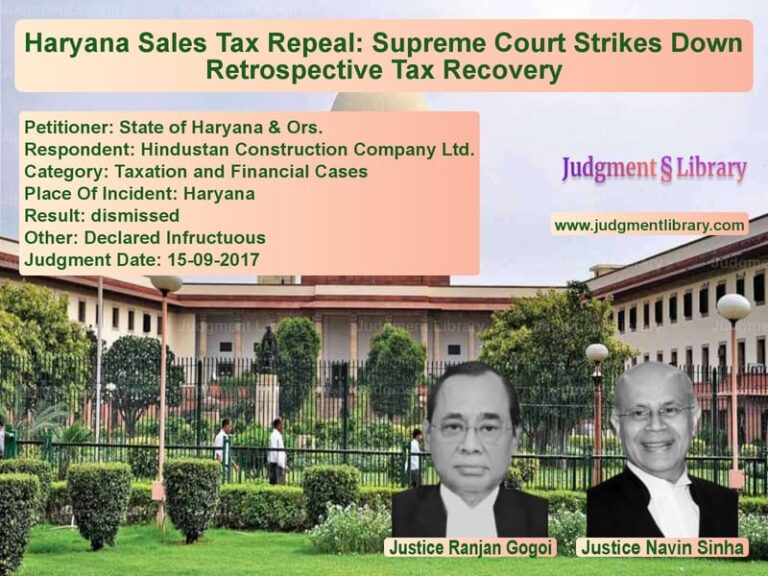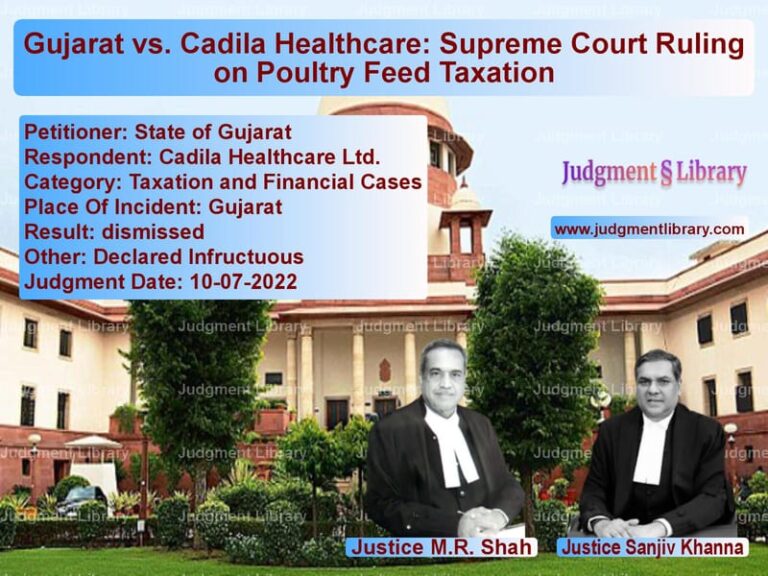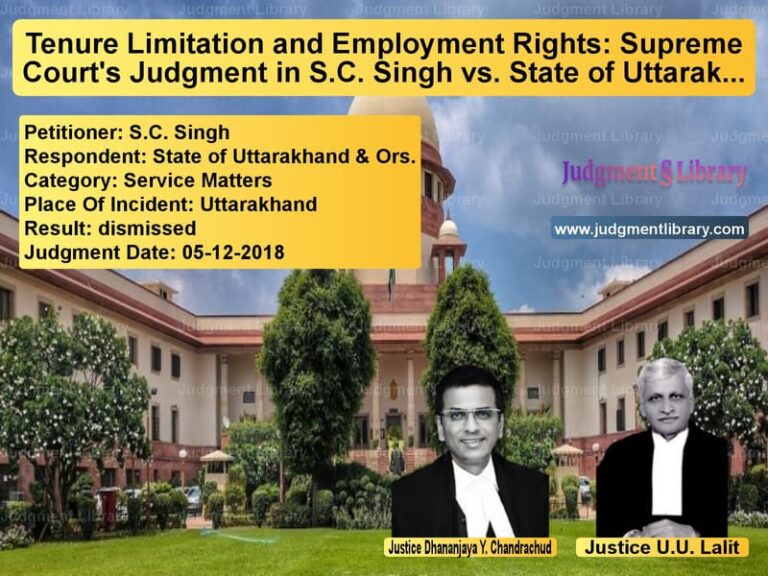Supreme Court Dismisses Challenge to Karnataka’s Reservation Law in Promotions
The case of B.K. Pavithra & Ors. v. Union of India & Ors. revolves around the constitutional validity of the Karnataka Extension of Consequential Seniority to Government Servants Promoted on the Basis of Reservations Act, 2018. The Supreme Court had to determine whether the law complied with the conditions laid down in M. Nagaraj v. Union of India (2006) regarding reservation in promotions.
The Supreme Court had previously upheld the Karnataka law in B.K. Pavitra II, ruling that it met the constitutional requirements. However, the present case involved fresh challenges through miscellaneous applications, seeking directions for implementing the reservation policy based on a post-based roster system and excluding the ‘creamy layer’ from Scheduled Castes and Scheduled Tribes.
Background of the Case
The Karnataka government enacted the Reservation Act, 2018, to grant consequential seniority to Scheduled Caste (SC) and Scheduled Tribe (ST) employees promoted under reservation quotas. This Act was intended to rectify defects in an earlier law that had been struck down in B.K. Pavitra I for not collecting quantifiable data on the backwardness and inadequate representation of SC/STs.
After the Supreme Court upheld the new law in B.K. Pavitra II, several government employees filed miscellaneous applications seeking directions on issues related to:
- Implementation of post-based reservations in promotions.
- Application of the ‘creamy layer’ principle to exclude affluent SC/ST individuals.
- Ensuring the state government followed the Supreme Court’s previous rulings on the issue.
Key Legal Issues
- Whether the Karnataka government was following a post-based reservation system as required by R.K. Sabharwal v. State of Punjab (1995).
- Whether the exclusion of the ‘creamy layer’ should apply in promotions for SC/ST employees.
- Whether the state had conducted an adequate exercise to determine the adequacy of representation before applying the reservation law.
- Whether the reliefs sought by the applicants could be granted through a miscellaneous application instead of a substantive petition.
Arguments by the Petitioners
The petitioners contended that:
- The Karnataka government was not following a post-based reservation system, which was mandated by the Supreme Court.
- The state had failed to apply the ‘creamy layer’ test at the entry level, resulting in unfair advantages for economically well-off SC/ST individuals.
- The government had not adequately assessed the representation of SC/STs in public services before granting consequential seniority.
- Their applications sought to ensure compliance with previous Supreme Court judgments rather than challenge the validity of the law.
Arguments by the Respondents (State of Karnataka & Union of India)
The state and the central government defended the law, arguing that:
- The 2018 Act was already upheld in B.K. Pavitra II, and the present applications were an indirect attempt to challenge a settled issue.
- The government was following the prescribed methodology for reservation and promotions.
- The exclusion of the ‘creamy layer’ in promotions was not mandatory under Article 16(4A).
- The applications raised new legal issues that could only be decided through a substantive writ petition, not through miscellaneous applications.
Supreme Court’s Observations
The Supreme Court dismissed the applications, stating that:
- The validity of the Karnataka Reservation Act, 2018, had already been upheld, and the present applications were an attempt to relitigate settled matters.
- The reliefs sought were substantive in nature and could not be granted through miscellaneous applications.
- The petitioners could challenge specific actions of the Karnataka government separately if they believed that the law was not being properly implemented.
The Court emphasized:
“Once a constitutional court upholds the validity of a law, its implementation cannot be challenged through miscellaneous applications. The correct remedy is to file a substantive petition seeking judicial review of executive action.”
Final Judgment
The Supreme Court dismissed the applications, holding that:
- The Karnataka government’s actions in implementing the reservation law were not subject to challenge through miscellaneous applications.
- The reliefs sought required a substantive legal challenge, which must be filed as a fresh petition.
- The Court made no observations on the merits of the petitioners’ claims, leaving them free to pursue appropriate remedies under the law.
Conclusion
The judgment clarifies that once a law is upheld as constitutional, its implementation cannot be challenged through procedural shortcuts. Key takeaways from the case include:
- Challenges to government actions under a valid law require separate substantive petitions.
- Post-based reservation and the creamy layer principle remain contentious issues in reservation policies.
- Courts must ensure that procedural rules are not bypassed in attempts to relitigate settled legal questions.
The ruling reaffirms the finality of constitutional court judgments while allowing petitioners to seek alternative remedies if they believe the law is being misapplied.
Petitioner Name: B.K. Pavithra & Ors..Respondent Name: Union of India & Ors..Judgment By: Justice Uday Umesh Lalit, Justice Dhananjaya Y Chandrachud.Place Of Incident: Karnataka.Judgment Date: 19-03-2020.
Don’t miss out on the full details! Download the complete judgment in PDF format below and gain valuable insights instantly!
Download Judgment: B.K. Pavithra & Ors. vs Union of India & Ors Supreme Court of India Judgment Dated 19-03-2020.pdf
Direct Downlaod Judgment: Direct downlaod this Judgment
See all petitions in Fundamental Rights
See all petitions in Constitution Interpretation
See all petitions in Public Interest Litigation
See all petitions in Judgment by Uday Umesh Lalit
See all petitions in Judgment by Dhananjaya Y Chandrachud
See all petitions in dismissed
See all petitions in supreme court of India judgments March 2020
See all petitions in 2020 judgments
See all posts in Constitutional Cases Category
See all allowed petitions in Constitutional Cases Category
See all Dismissed petitions in Constitutional Cases Category
See all partially allowed petitions in Constitutional Cases Category







